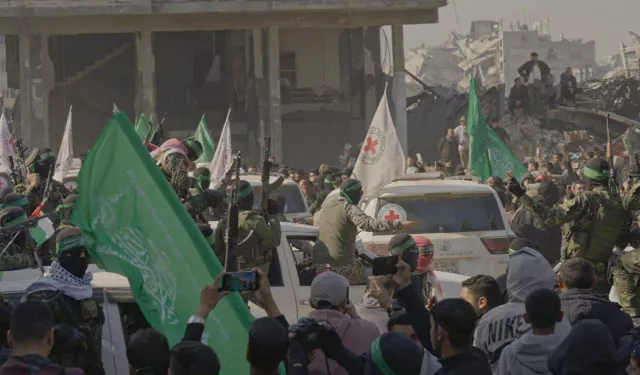A senior Hamas official taking part in ceasefire negotiations in Doha told Al Manassa that talks remain deadlocked, with key disagreements unresolved despite Israeli proposals for troop withdrawal maps.
“The negotiations have not progressed beyond the fundamental points of contention,” they said, “even if Israel has presented new maps for its withdrawal and redeployment in Gaza, that doesn’t mean we have reached consensus on the agreement. Core issues are still pending.”
In recent days, reports suggested Israel would present revised withdrawal plans, including a pullout from the Morag Corridor and the establishment of a 2-km buffer zone.
The official identified two key sticking points preventing progress: the mechanisms for delivering humanitarian aid to Gaza and securing international guarantees to ensure Israel does not breach any agreement.
The official also questioned recent optimism from US officials. “We do not understand the basis for their [Steve Witkoff and President Donald Trump] optimism,” he said. “Everything indicates that the occupations government Prime Minister Benjamin Netanyahu is only willing to accept a temporary truce that leads back to war. That fundamentally contradicts our goals.”
Hamas and Israel are currently engaged in indirect negotiations, mediated by Egypt, Qatar, and the United States, over a proposed two-month truce. The deal would include the release of the remains of nine Israelis and ten living detainees in exchange for Palestinian prisoners held by the occupation, alongside the entry of humanitarian aid into Gaza and an Israeli military withdrawal.
“As long as the Israeli delegation remains at the table, the talks cannot be considered a failure,” the Hamas official said. “But there has been no significant breakthrough.”
The official warned that Netanyahu's approach to Gaza is shaped by a logic of “displacement and substitution,” claiming this strategy endangers Egypt’s strategic interests. “A resistant Palestinian population on Egypt’s border is a strategic asset,” he said. “Netanyahu wants to dismantle that equation.”
Asked whether Hamas might accept a partial deal to ease conditions for Gaza’s residents, the official responded: “Perhaps, but not on the basis of the current proposals. Any interim agreement must be part of a broader vision aligned with its nature.”
On March 18, Israel refused to proceed with the second phase of a ceasefire agreed in January that was meant to last until the end of the war in Gaza. It resumed its military campaign, and mediators have since failed to broker a new ceasefire or secure a comprehensive agreement to force Israel to halt the conflict.
